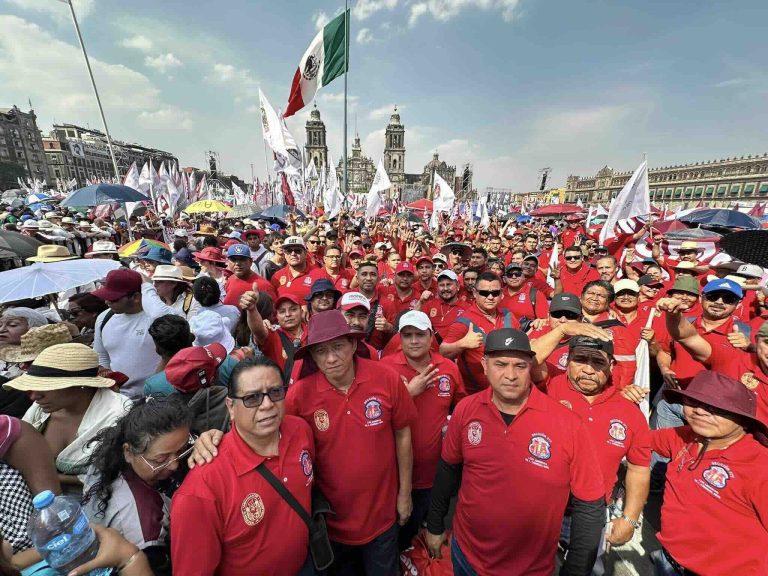The National Union of Mining, Metallurgical, Steel, and Related Workers of the Mexican Republic considered it urgent to publish secondary laws regulating exploration and environmental remediation in the mining industry, given the sector’s stagnation and the decline in investment in recent years.
“The sector faces significant challenges that limit its growth and projection,” warned the union’s president and general secretary, Napoleón Gómez Urrutia, who maintained that to take advantage of the country’s mining potential, “it is essential to strengthen it under three fundamental principles: respect for national laws and international conventions, respect for labor and community rights, and respect for the environment.”
The leader emphasized that “one of the most urgent challenges is the lack of specific secondary laws regulating mining exploration and environmental remediation plans, which are necessary to ensure sustainable development and ecosystem conservation.”
According to Gómez Urrutia, the absence of these regulations has led to “investment in mining exploration reaching its lowest level in recent decades, with estimates of just US$583 million by 2025, compared to US$1.165 billion in 2012.” This situation, he said, “restricts the ability to discover new deposits and renew depleted or low-metal reserves,” in addition to increasing costs and environmental risks.
Strategic minerals
The Miners’ Union also called for diversifying the national mining industry and strengthening self-sufficiency in strategic minerals. “The mining industry must diversify to stop depending on imported strategic minerals and guarantee fair and decent working conditions for mining workers, aligning with international standards,” said Gómez Urrutia.
He added that projects like the state-owned company LitioMX “need to be activated for the mining industry to take off, given the vital importance of lithium in the global energy transition.”
The union leader highlighted the country’s potential for rare earth extraction, a key resource for the production of advanced technologies. “Mexico has important deposits in states such as Sonora, Chihuahua, Coahuila, and Oaxaca, which, along with its geographic proximity to the United States and current trade agreements with other countries, gives it magnificent potential for integration into global value chains,” he noted.
However, he insisted that “greater investment is still needed in exploration, research, and technological development for sustainable extraction and processing,” as well as in the use of recycled materials. “Technological advances and global demand for these minerals cannot, under any circumstances, represent environmental damage to our nation,” he warned.
Gómez Urrutia emphasized that the State must play a leading role in the development of the mining sector. “We cannot leave everything in the hands of private investment because it is essential to protect our national heritage,” he said. He clarified that the union accepts private investment, “national or foreign, only if labor rights, national legislation, international conventions, communities, and the environment are strictly respected.”
The union leader emphasized that “there is no mining without the skills, experience, and dedication of mining workers; nor is there industrial growth without metals,” and therefore urged “expanding labor rights and ensuring their full and effective enforcement.”
He also warned that U.S. tariff policies on steel and aluminum “demonstrate the need for strong national strategies to protect the sector from external factors.”
The National Miners’ Union stated that “for mining in Mexico to recover and expand its strategic role, a firm commitment from the State is essential, as well as regulatory updates that include clear laws for exploration and environmental remediation, respect for labor and community rights, technological investment, and the promotion of responsible diversification.”


